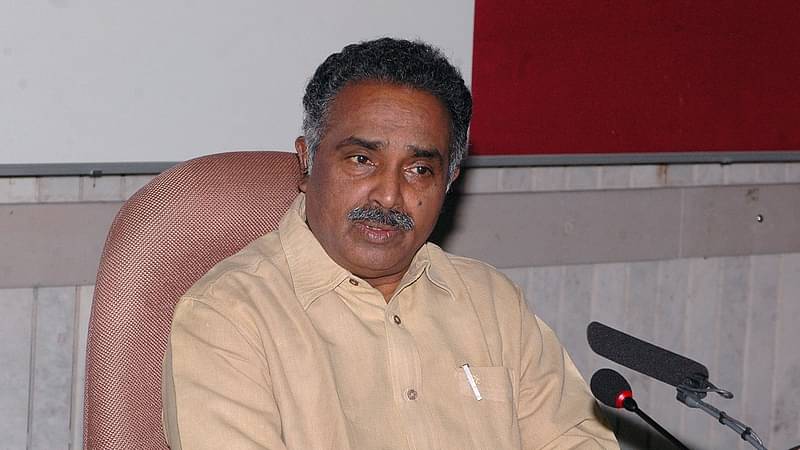Rajya Sabha Deputy Chairman Harivansh Narayan Singh allowed for a voice vote to decide the fate of two contentious farm bills on Sunday, despite members asking for a division of votes. The House rules state that once the members ask for a division of votes, the chairperson cannot proceed to decide by a voice vote. Even if only one member asks for it, he has to go in for voting, explained PDT Achary, former secretary general of the Lok Sabha.
Article 100 of the Constitution says that every question shall be decided by a majority of the members sitting and voting. “There are two things to be addressed - the majority has to be determined, but how do you determine majority in the House? It can only be decided by voting. Voice votes cannot decide the majority. There is no constitutional sanction for voice vote. This must be clear,” underscored Achary.
Article 100 specifies voting in the Rajya Sabha. It states that all questions shall be determined by a majority of votes of the members present and voting, other than the Speaker or person acting as Chairman or Speaker.
While all legislatures have followed the practice of voice votes, that is under the presumption that the government has a majority in the House, so whatever the government brings is likely to be passed. However, on Sunday, the government was unsure of the numbers on its side in Rajya Sabha as many MPs were absent.
On Sunday, the Rajya Sabha, amidst tumultuous scenes, passed through a voice vote two Bills - The Farmers Produce Trade and Commerce (Promotion and Facilitation) Bill, 2020 and The Farmers (Empowerment and Protection) Agreement on Price Assurance and Farm Services Bill, 2020. These farm Bills sought to replace two ordinances passed on June 5, 2020. These two Bills were earlier passed in Lok Sabha.
Opposition members were demanding the withdrawal of the Bills and they wanted to send it to the a Select Committee. The Deputy Chairman of Rajya Sabha, Harivansh sought to extend the time of sitting of the House beyond 1 pm till the passage of the Bill. The Opposition members demanded that the House be adjourned as per schedule and the Bills be taken up on Monday. However, Harivansh continued with the proceedings and asked Agriculture Minister Narendra Singh Tomar to respond to the points raised against the Bill.
The decision of Harivansh led to a pandemonium as Opposition members rushed into the well of the House to protest. The chairperson adjourned the House for 15 minutes and then reconvened at 1.40 pm. At this point, the Deputy Chairman took up the resolution by the Opposition members for sending the Bills to a select committee. The House negated it again by a voice vote, causing the Opposition to raise their voices, rush to the well, tear papers and sloganeering.
Amidst this sloganeering, the Deputy Chairman took up both the farm Bills and passed each clause by voice vote. The members sought the division of vote on the clauses, but this was also refused by Harivansh.
When the chairperson pushes a question in front of the House after the conclusion of debate, he says, “The motion moved by the minister be adopted. Those in favour of it, say ‘Aye’ and those not in favour, say ‘No’. Then the chairman will say, “I think the ‘Ayes’ have it or I think the ‘Nos’ have it”.
“At this point the members can challenge it and then the chairperson has to say, ‘Let the lobbies be cleared’. This is for the division of votes. It is clearly stated in the rules which the chairman has to follow. He cannot decide arbitrarily. If the members ask for division, he cannot ignore it and move on and announce that the Bill has been passed,” pointed out Achary.
In the House, division means voting. Votes can be given in three ways –through electronic machines, going into the lobby to vote on the slips given to them, or voting in the House if slips are distributed to them in the House. “The point is their votes have to be recorded,” added Achary.
What happened in the House on Sunday did not conform to the rules, said Achary, even though the chairperson said there was pandemonium in the House. “This does not mean he has to move on to the next stage to decide everything by the voice vote. Either the chairperson should adjourn the House for some time, let normalcy return and after that voting could have been done,” he said.
This arbitrary behaviour of the deputy chairperson led the Opposition members to demand for his removal. The Opposition parties stated that they have “no-confidence” in the Deputy Chairperson and “hereby move the motion for his removal”. Drafted by Congress MPs Abhishek Singhvi and KTS Tulsi, it was backed by the Congress, TMC, DMK, CPI, CPI(M), Kerala Congress (M), IUML, RJD, SP, TRS and AAP.
“There is no precedent for a no-confidence motion against the Deputy Chairman. However, the Constitution provides for removing him. They can do it by giving a 14-day notice and they have to specify the charges against the Deputy Chairman. The matter is then discussed, and the Deputy Chairman will be given a chance to respond to those charges,” said Achary.
The Article 90 of the Constitution allows for the no-confidence motion against the deputy chairperson and the Opposition motion stated that “there have been precedents in this regard available in several treatises, including the ‘Practice and Procedure of Parliament’ by MN Kaul and SL Shakder (seventh edition).
































